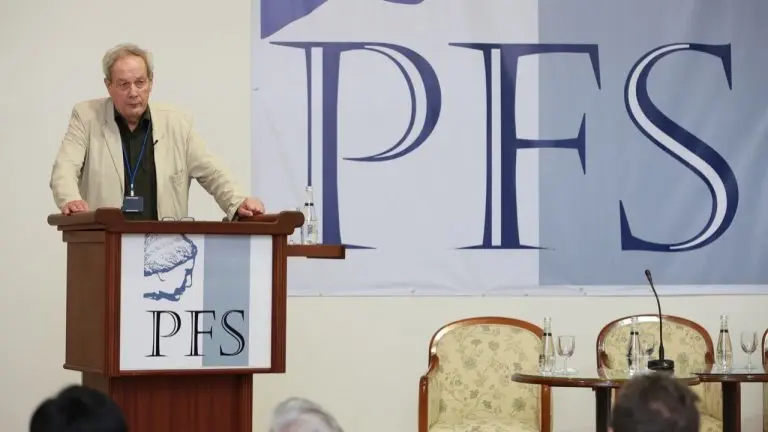As any observer of contemporary geopolitics will have noticed, the values upheld by the Chinese Communist Party (CCP) are diametrically opposed to the values of democracy, freedom of speech, freedom of worship, free enterprise, and the rule of law, which conservatives in Europe seek to defend. Since 2004, China has successfully undertaken a large-scale initiative of cultural diplomacy, through which it seeks to undermine these quintessentially Western values. The primary means by which the CCP is putting this plan into action are the Confucius Institutes (CIs), which have proliferated globally within a mere two decades, creating CCP footholds within academic institutions throughout the West.
Of course, this campaign has been met with suspicion. Beijing’s tactical use of soft power has alarmed prominent state and non-state actors in the U.S., the UK, and the European Parliament. And yet, where we should now be aiming to resolve such concerns, the West—especially Europe—has faltered at the challenge. Within the last month, developments—or lack thereof—regarding the status of CIs have been neglected and, regrettably, become a rather stagnant issue. And yet, with the apparent build-up toward a new Cold War with China, the West should be more wary of CIs and their political ramifications.
According to the CI’s constitution and by-laws, its function as a non-profit public institution is to “develop and facilitate the teaching of the Chinese language overseas and promote educational and cultural exchange and cooperation between China and other international communities.” From the outset, such an initiative certainly seems reasonable: it is valid to ‘soften’ China’s public image and, by extension, mitigate the ‘China Threat Theory’ through direct outreach abroad. It is arguably similar to initiatives undertaken by the West, promoting Western languages or culture overseas through notable institutions such as Alliance Française, the Goethe Institute, or the British Council.
However, what is unique to Beijing is the sheer rapidity with which the number of its cultural institutions throughout the world has escalated. Between 2004 and 2021, 550 CIs were opened worldwide—an average of 32 a year. More than this, Beijing has targeted (or, according to some, infiltrated) adversary countries in the West. This author has calculated that, by 2018, 27% of all CIs and over 58% of ‘Confucius Classrooms’—the equivalent of CIs in primary and secondary schools—were in the U.S. and UK alone. In the same year, the U.S. was home to over a quarter of CIs globally. Another rather striking distinction between CIs and, for example, Alliance Française is that, within a mere 17 years, CIs have increased across 146 countries, whereas Alliance Française has established 131 networks over 138 years.
To be sure, one may argue that the era of globalisation has naturally accelerated the rate at which CIs have emerged and become entrenched in Western academia. Yet, statistics aside, the content that is taught in these institutions is most alarming, and suggests a concerted effort on the part of the CCP itself.
Dr. J. Michael Waller, a senior analyst for strategy at the Centre for Security Policy, labelled CIs as a CCP operation whose function is to “influence [and] penetrate” academic institutions globally. Such a conclusion is undoubtedly self-evident in the approach adopted by the CI curriculum, namely censorship. Indeed, at the expense of intellectual freedom—a value repressed in China, while traditionally prized in the Western world—CIs censor particular issues in order to create a more favourable image of China. For example, Chinese teachers—“hired, paid by, and accountable to” the CCP—are pressured to ‘avoid’ delicate issues such as the Cultural Revolution and the Tiananmen Square Massacre.
In August 2021, the Human Rights Foundation recognised the extent of this issue in the U.S., publishing a report which confirmed that CIs “cultivated a climate of intimidation and surveillance within American classrooms” with “censorship and self-censorship [being] especially prevalent [amongst] educators, researchers, administrators, and students alike.” Perhaps more concerning—and bizarrely nostalgic—is the parallel between CIs and the ‘fellow travellers’ of the Soviet Union during the Cold War. CIs provide scholarships to students and the opportunity to visit or participate in ‘study tours’ to China to show students “the real China.” Significantly, these educational opportunities, in tandem with financial incentives bestowed upon universities, naturally rule out any institutional criticism of Chinese policies, such as its ‘re-education camps’ for Uyghur Muslims.
Significantly, it has been over a decade since Wang Gengnian, the director of China Radio International, gave a speech in 2011, advocating that “we [China] should quietly plant the seeds of our ideology in foreign countries” through “good use of our traditional culture to [advance] our socialist ideology.” Yet, despite knowledge of the threat, the West seems indifferent to the fact that it is harbouring and supporting its enemies on its own soil.
In Europe, the UK is home to the highest concentration of CIs, based across 30 different university campuses. Unfortunately, the UK has adopted a weak stance on the issue of CIs, in part due to a tumultuous period of transitions between numerous prime ministers in the last two years. In May of this year, PM Rishi Sunak made a U-turn from his initial leadership pledge to close down CIs nationwide. Downing Street indeed acknowledged the “concerns” over CIs, but claimed that it would be “disproportionate” to ban them.
Instead, they are “taking action” by ceasing UK government funding. Sunak’s approach to this issue certainly pales in the stance of his predecessor, Liz Truss, who advocated firmly against CIs. Instead, the UK government now appears to be adopting a highly self-contradictory stance, especially considering that in July of 2022 Sunak described China as “the biggest long-term threat to Britain.” This weak stance may risk CIs becoming more reliant on Chinese funding from Hanban, the agency heading the CIs, notorious for its lack of transparency.
U.S. leadership followed a similar policy. Under the Trump Administration, which took a hard-line approach to CIs, 104 of the 118 CIs in the U.S. had been successfully closed down by the end of 2021. By contrast, the Biden Administration has been “more pliant.” For example, within just a week of taking office in January 2021, the Biden Administration instructed the Department of Homeland Security to abandon a proposed rule by the Trump Administration that would require transparency between U.S. campuses and CIs, specifically to disclose any agreements made with the Confucius Institutes or their equivalents. Where the United States was previously making great strides to combat this national security issue, such progress has rapidly declined under Biden.
More generally, strategies in EU countries seem to have yielded mixed results: while March this year saw some progress, with Germany’s Frankfurt University severing its ties with Beijing, conservative efforts advocating for harsher stances against CIs nationwide have unfortunately gone unheeded. Meanwhile, earlier this year Italy had been looking to expand its local CIs, namely in Bari. And even while the academic year for students was on pause for the summer holidays, Transylvania University of Brasov held a two-tweek ‘Confucius Institute Summer Camp’ in July.
On the flip side, rather than dabbling with CIs, bilateral government action has gone so far as to advance benign alternatives.
In December 2020, the U.S. and Taiwan launched the U.S.-Taiwan Education Initiative. This cultural exchange scheme aims to expand access to Chinese and English language learning whilst “safeguarding academic and intellectual freedom.” As of December 2022, 34 new institutes had been established in the U.S. According to the University of Nottingham, an ideal solution would be for the UK to adopt similar legislation to that of the U.S., namely a UK-Taiwan Education Initiative. This would, in effect strengthen Taiwan’s ties with its Western allies while limiting the influence from adversaries such as the CCP and its CIs—an approach which would likewise be of benefit to the EU and other global partners. In a similar vein, an appeal to UK universities to “join the Taiwan-UK University Alliance” was made by the British Council earlier this year. Still, there has been little progress indicating a government-led initiative under Sunak or the substitution of CIs with Taiwanese institutions.
As the threat of China looms, it goes without saying that the West should be far more proactive in response to CIs. The Trump Administration’s recognition of the malicious intent behind these CCP-funded institutions should have set a precedent for not only Trump’s predecessor but for leaders throughout the Western world. Although the European Parliament recommended that European universities reconsider their cooperation with Confucius Institutes, designating them as “Chinese lobby platforms,” not enough substantial effort has been made by EU actors to highlight the issue. All the while, the UK’s inconsistent approach to the challenge seems to be leading us nowhere.
As defenders of academic freedom and champions against totalitarian ideologies, leaders of the Western world and of the conservative movement ought to be more vigilant about the duplicitous nature of CIs. Will Western politicians of all stripes rise to the challenge? Or will they continue to neglect the issue?





